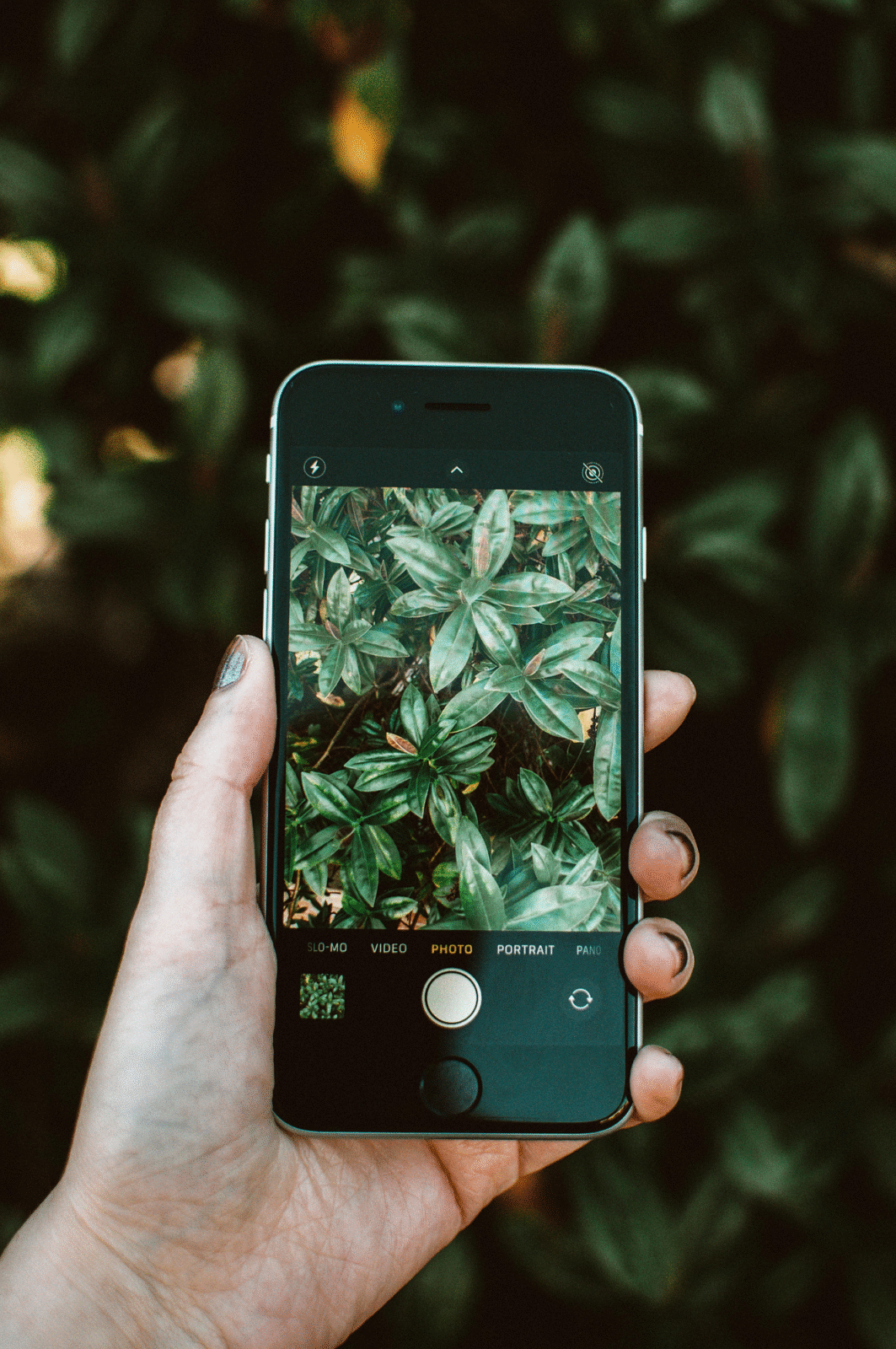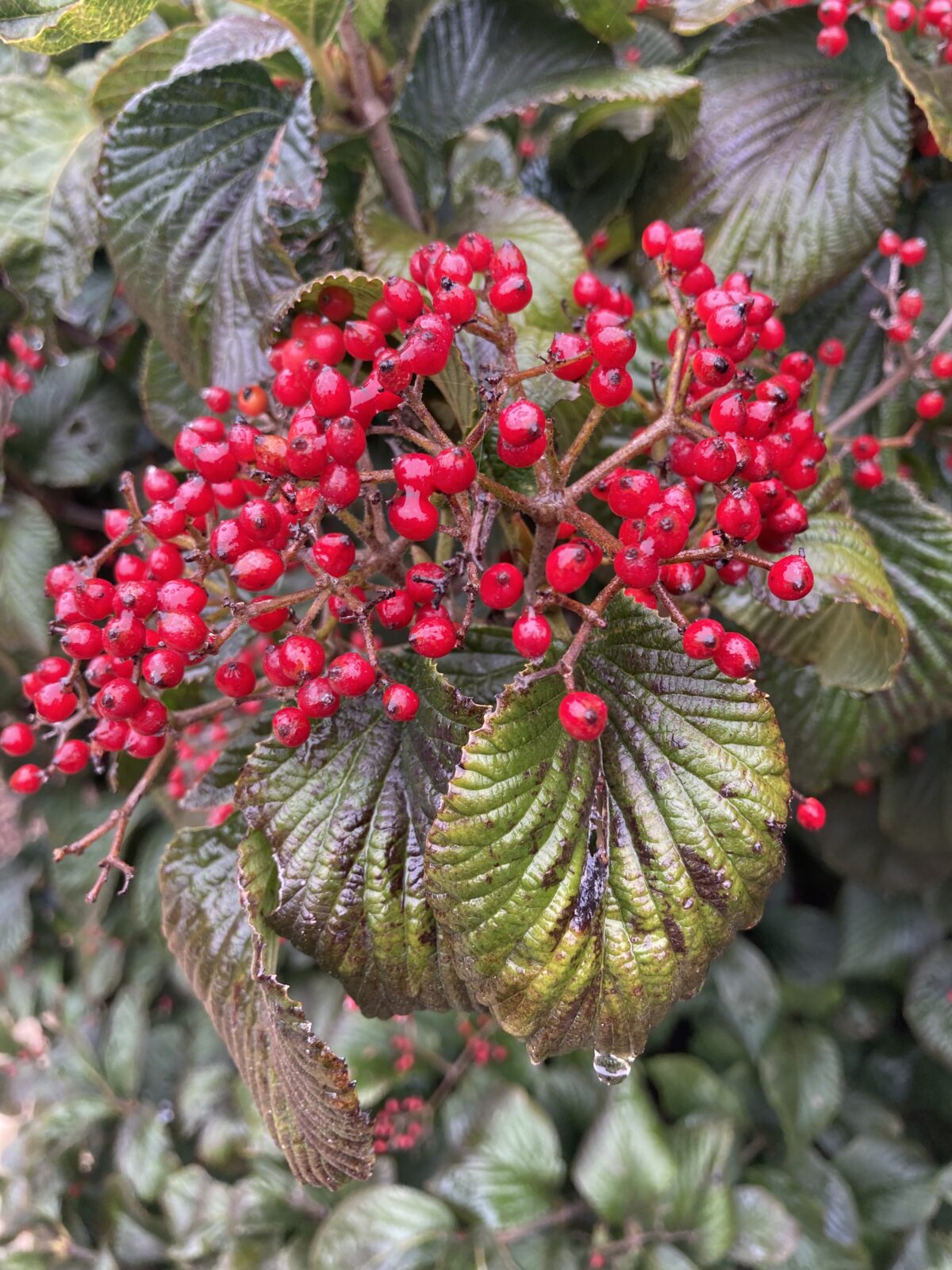Alana Edwards, Master’s Student, UGA Department of Horticulture
Hello MGEVs and Trainees! As we approach summer’s end, we want to share an opportunity for Master Gardeners to participate in a hands-on horticultural research study. I am a graduate student in UGA’s Department of Horticulture under Dr. Sheri Dorn, and I’m researching ways to engage volunteers to collect plant phenology data. Through this study, I hope to better understand how group, paired, and individual participation in a citizen science project affects data quality and volunteer attitudes.
What is plant phenology, and why should MGEVs collect this data?
Are you wondering what phenology even is? Well, you are probably familiar with it and don’t even realize it! Plant phenology is the timing of plant life cycle events such as flowering, fruiting, and leafing out. Scientists have mostly used plant phenology data for climate and ecological studies, but there are also applications for horticulture. Knowing when plants in the garden leaf out in the spring or set seed in the fall can tell us when to prune and propagate. Knowing when our garden will be in peak bloom or peak fall color allows us to plan timely outreach events and encourage public visitation. With nearly 300 garden projects across the state, UGA Master Gardeners have many sites to collect phenology data and make it available to researchers and home gardeners alike.

Want to participate?
This project is going to be educational and fun! There are a few requirements, though. Eligible participants must:
- be 18 years of age or older
- be an active UGA MGEV or Trainee
- have a smartphone running at least iOS version 12 or Android platform version 6
- have an active, Extension-approved garden project in their county that features ornamental trees, shrubs, and/or herbaceous perennials*
*Garden projects include demonstration gardens, botanical gardens, historic gardens, and community gardens, so long as they feature perennial ornamental plants. Gardens that strictly grow vegetables and annual plants, as well as greenhouses, conservatories, and other controlled-environment settings, are not well-suited for this project.
What will participation involve?
This is a six-week study. Prior to the study, you will complete an online questionnaire. During Week 1 of the study, you will attend one of two scheduled orientation sessions on Zoom and complete a series of short training videos in an online classroom setting. Each week thereafter, you will visit a garden project in your county to make plant phenology observations using the mobile app iNaturalist.
You will be randomly assigned to work alone, with one other MG in your county, or two other MGs in your county. If you are in a pair or group, you will need to meet up with your partner(s) at a garden in your county to make your weekly observations. Each participant will submit five observations per week. You are not required to visit the same garden each week.
There will be two Zoom sessions during the study to check on everyone’s progress and answer your questions about data collection. Following the final garden visit, you will complete a post-study questionnaire and attend a Zoom discussion session to share your thoughts. A detailed schedule and estimation of the time commitment for each part of the study is included in the table below.
| 2025 Phenology Monitoring Research Study Schedule | ||
| Week | Activity | Time Estimation |
| Week 0 (Deadline August 27, 2025) | Pre-Study Questionnaire | 20 mins |
| Week 1 (September 2-9, 2025) | Participant Orientation (Zoom) | 90 mins |
| Phenology Monitoring Training (eLC) | 90 mins | |
| Week 2 (September 10-16, 2025) | First garden visit & observations | Up to 60 mins |
| Check-in session (Zoom) | 45 mins | |
| Week 3 (September 17-23, 2025) | Garden visit 2 | Up to 60 mins |
| Week 4 (September 24-30, 2025) | Garden visit 3 | Up to 60 mins |
| Check-in session (Zoom) | 45 mins | |
| Week 5 (October 1-7, 2025) | Garden visit 4 | Up to 60 mins |
| Week 6 (October 8-14, 2025) | Garden visit 5 | Up to 60 mins |
| Post-Study Questionnaire | 20 mins | |
| Final Discussion (Zoom) | 60 mins | |
Participation in each part of the study is completely voluntary and will not affect your standing as a Master Gardener Extension Volunteer. However, participants that do not complete the pre-study questionnaire and Week 1 activities will not be able to take part in the remainder of the study.
What are the benefits and potential risks of my participation?
This project is designed to educate participants about plant phenology and the best practices for phenology monitoring. You may gain skills in data collection, plant identification, and the use of the smartphone app iNaturalist. You can earn Volunteer Service and Continuing Education (CE) hours for participating. Time spent in orientation and training may be logged as CE, while time spent submitting observations may be logged as volunteer service in MGLOG.
While we do not anticipate major risks, participating in this study may involve some discomforts. You will be randomly assigned to work alone, in a pair, or in a group of three, and personal preference will not be considered in this assignment. Working with others can be fun but may sometimes involve group disagreements or inconveniences. This study involves traveling within your county and collecting data outdoors. This could lead to extra travel time and may involve walking or being outside in various weather conditions. Using a smartphone application to collect and submit data may be frustrating at times, and it involves sharing information such as your username, photos, and location. You will have resources to help troubleshoot issues and protect your privacy to the extent possible.
The findings of this study will benefit the Extension Master Gardener program in Georgia and beyond. In addition to the knowledge gained about MG involvement in scientific research, the hundreds of phenology observations collected during this study will help us to learn about our diverse MG project sites and the plants within them. This new knowledge will be used to create plant ID signs that can be displayed in demonstration gardens across the state.
I’m interested! How can I participate?
Interested participants should complete the online screening form. This brief form will allow the researchers to determine your eligibility and to contact eligible participants with next steps. For more details about the research study, please read the recruitment letter. If you have additional questions, please feel free to contact Alana Edwards at alana.edwards@uga.edu or Dr. Sheri Dorn at sdorn@uga.edu



